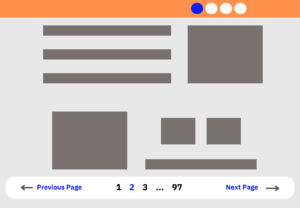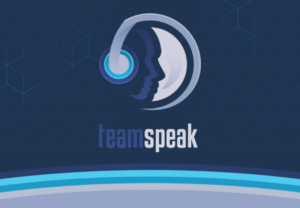Facebook Groups contain communities and hubs dedicated to web design. As such, designers can find inspiration, advice, contracts, and connections to networking events. It’s also an excellent platform for getting more followers if you publish online content about web design. Joining these groups will help you get more Facebook Likes on your posts and increase engagement on your content.
In particular, you can see the activity feed from the Groups you belong to and a discovery tool that will recommend Groups based on the user’s interest. Joining Facebook groups in any industry is one of the easiest ways to familiarize yourself and make great connections. Web design agencies and freelancers can find helpful advice posted in Facebook groups dedicated to web design.
From technical matters to contracts to even making valuable connections. We’ve made connections that have made networking at events more enjoyable. Essentially, together with our key partners, we even launched WP FeedBack with the help and support of the entire WordPress community. So, are you still wondering how to familiarize yourself and connect to the web design niche?
In this guide, we’ll break down the benefits of Facebook Groups for web designers and the professional business community in sharing ideas, skills, and knowledge and learning new trends. You’ll also learn a few tricks of how they can help empower your overall Facebook marketing strategy and best practices for engaging your audience. So, stay with us till the end to sharpen yourself.
Understanding What Facebook Groups Are And How They Help In Brand Outreach
Chances are you’ve watched your Facebook engagement dwindle over the past year or so. Conversely, Group posts are what the Facebook algorithm is looking for. For one thing, according to Facebook itself, the platform prioritizes content from Groups that users frequently engage with. It means you should consistently publish to your Group for your audience to start reacting. Learn more below:
By doing so, or if the audience posts content themselves, you feed the algorithm precisely what it wants. You can see this for yourself by scrolling through your own Facebook feed. Coming across a group post from proactive members doesn’t take long. For beginners, Facebook is still, by far, the most popular social network out there. Use that to your advantage as a business owner.
On the contrary, there is no need for competitiveness and keeping business secrets. Given the industry’s sheer size, everyone can have their fair share of the market and succeed without directly competing with each other. It comes as no surprise, as Facebook is huge. It’s a favorite social network for online community building, and you’ll find heaps of groups dedicated to virtually every niche.
Facebook Groups are a place to connect, learn, and share with people with similar interests. Groups are part of Facebook’s (now Meta) overhaul to bring Groups to the center of the application; the company announced New Updates to the platform. To start, Facebook redesigned the Groups tab so it’s easier to find. Users who open the group’s bar will see a personalized activity feed.
How Facebook Groups Help Empower Designers And Branding Professionals
The best thing about web designers who join groups is that they are very open about sharing everything they know with their community. This is because, in web design, there is no need for competitiveness and keeping business secrets, on the contrary. Given the industry’s sheer size, everyone can have their fair share of the market and succeed without directly competing with each other.
Let that sink in… Imagine having direct conversations with hundreds or thousands of your target audience as they get to know you and see your brand constantly… without spending a dollar. Most businesses would kill for that kind of access to their target market. According to the Sprout Social Data Index, nearly half of consumers join private communities to engage with businesses directly.
Resource Reference: How Facebook Groups Became A Helping Tool Over The Years
Note: If someone joins your Group, they want to hear from you. They’re interested in your content. They might even be willing to be sold with some nurturing. Think of someone joining your Facebook community as an opt-in. In a sense, Group members can potentially be your most loyal customers. No matter how enthusiastic you are about web design, do not try to join every group.
If you do so, you will end up overstretching your attention, making you dedicate more time to social media than you’d like. After all, countless Facebook notifications from all sides are not the best experience if you’re trying to focus on doing your job—or anything else, for that matter. Trying to handpick the groups that suit you best from the never-ending list will probably take too much time.
The Most Recommended Facebook Groups For Creative Designers To Join
In a nutshell, through the power of Facebook Groups, getting into an industry doesn’t have to be daunting, especially regarding webmasters. Before you know it, you’ll feel like you know almost everyone! For instance, we had in mind the role of ‘Audience First’ when building our Web Tech Experts Facebook Group, but we still needed some branding and marketing ideas from the experts.
The “audience first” concept was maybe something we could replicate. Having read a lot about Facebook groups being all the rage, it seemed as good a place as any to start. Fast forward nearly a few years, and it’s one of the best things for our business. The best part is that it’s helped with more than just growing revenue. On average, there are over 35K members and 90K monthly interactions.
From startup companies, eCommerce businesses, retail stores, digital agencies, and government entities to even Fortune Five brands. Whether your goal is to increase sales/subscriptions or get more traffic, there’s a way that our great content designers, SEOs, and marketing toolkits can help you get there. We constantly update new content on our Facebook Group (Join Now) for free.
As mentioned, you’ll likely not reach the bottom of the list when searching for Facebook groups to join. The platform is famous for online community building, and there are numerous groups for every vocation. Fortunately, a few Facebook Groups can help you improve your web design and development skills. Below are carefully selected Facebook Groups for web designers to consider:
1. The Admin Bar Community
First, The Admin Bar Community has been Voted The #1 WordPress Community for web design professionals. Secondly, The Admin Bar Community is a safe place for everyone to share what they’ve learned, ask questions, and grow with the support of their peers in the industry. This closed group is always full of active members and admins. Kyle Van Deusen owns the Admin Bar.
His goal was to create a community where individuals in the niche of WordPress got to ask questions, discuss agency growth, and talk about their situations with clients. The group has over 5K+ members whom you will find as enthusiastic as you are in web designing. Occasionally, several people say they still use Facebook to visit The Admin Bar group! It’s a social networking hub.
2. GoWP Niche Agency Owners
Run by GoWP, GoWP Niche Agency Owners is yet one of our other favorite Facebook Groups. For your information, GoWP is a company widely known in the industry for providing incredible support for WordPress businesses with a focus on white-label solutions for other agencies. Emily Hunkler, the director of growth of GoWP, is highly active in this Facebook Group community.
She does an incredible job of keeping the community engaged by running weekly happy hour calls among and more… Suppose you’re a creative web/content designer who wants to get directly to the technical point of building your business rather than spending too much time socializing and community building. In that case, the GoWP Niche Agency Owners Facebook Group is your best bet.
3. Grow Your Web Design Business
Are you a web designer who wants to get directly into the technicalities of building your business instead of socializing and networking? James Rose owns this Facebook group and provides you with work-related advice and content that stays within WordPress, agency growth, and scaling topics. This group’s strong professional orientation is toward thousands of webmasters.
Likewise, it’s entrepreneurs like you who make it valuable. You will find discussions on getting clients and finding great tools and automation. As per a little summary of the Facebook Group, it has just crossed over 2,500 people. That’s after they rejected 50-60% of applicants for reasons they’ll get into later. That’s 2,500 different businesses that are mainly their exact target audience.
4. Supercharge Your Web Agency
Supercharge Your Digital Marketing, Digital Services, WordPress, or Web Design Agency. Their Facebook Group is dedicated to helping agencies to grow their business. Chris Castillo, the group admin, has created a name for himself in the web design industry and spends much of his time providing valuable information to his over 5K group members. The group represents the SCYWA.
A global community of web designers, copywriters, SEOs, funnel and chatbot creators, digital marketers, small businesses, and agency owners. This is a spam-free and promotion-free group that is focused on converting a digital agency from a startup to a successful and established company. Besides web design, the group also focuses on digital marketing, WordPress, and scaling.
5. The Advanced WordPress (AWP) Global Community
To enumerate, the Advanced WordPress (AWP) Facebook Group is a global community of passionate WordPress developers and advanced users who seek to share and advance their knowledge and understanding of the WordPress open-source platform. Notably, the AWP group members come from various political, religious, ethnic, gender, and experiential backgrounds.
In this group of over 33K members, you will find almost every new and old plugin significantly changing how you build websites. At all costs, Advanced WordPress is a one-stop for those who have advanced WordPress knowledge. Usually, individuals who ask questions are criticized. Luckily, you don’t have to ask anything since you can learn alloy from reading the group posts and comments.
6. The Brand Design Community - DIY Your Brand
With over 19.5K members, this Facebook group is owned by Mor Cohen and includes content topics such as branding, WordPress, and web design. Mor is also the founder of FlixFrame, a design consultancy that helps businesses worldwide design and build high-performing websites. The group is a community of like-minded individuals who share a common interest in brand creation.
They are a supportive, inclusive, and engaging community dedicated to learning and connecting with others interested in creating their high-converting brand. Their focus is helping you create a Designed To Convert brand that you can be confidently proud of so you can attract great leads and convert them into paying clients. Get the resources, support, and information needed to grow your agency.
7. The WP Builds Facebook Group
The WP Builds Facebook Group, run by Nathan Wrigley and David Waumsley, is another excellent place for people in the WordPress ecosystem to hang out. They know that they love building websites with WordPress, but the complexities of this perfect web-building solution are always out of reach. So, they created a place where people can come together and help each other.
Created by professionals who think the same way, this group offers you work-related advice that doesn’t stray too much from the subject. Its strong professional orientation makes this group especially valuable because of its shared content. Thousands of its members discuss diverse topics such as creating better processes, finding great tools, getting clients, automation, etc.
7. The Web Design & Branding Community
With over 7K members, the Web Design & Branding Community owner is Mor Cohen – the founder of FlixFrame. Markedly, FlixFrame is Mor’s design consultancy, where she helps businesses across the globe design and build high-performing websites. We highly recommend joining it to get Mor’s direct help and advice from the others so you can design & develop better websites.
Overall, this is another excellent place for people in the WordPress ecosystem to hang out. Moreover, its insider members know that they love building websites with WordPress, but the complexities of this excellent web-building solution are always out of reach. So, they created a place where people can unite and help each other. You, too, are invited to join the group.
Other Notable Groups:
- The Atarim Community
- Digital Mavericks Community
- Rank Math SEO Group
- Beaver Builder Community
- Elementor Facebook Group
- Web Creators Community
In a nutshell, the abovementioned Facebook Groups, among others, are unique places where we share the excellent and impressive things we are building, doing, and learning as professional webmasters. To advance our knowledge, most members ask excellent and well-researched questions. Sometimes, those are some of the most constructive posts in technological groups.
Beginner Tips To Join A Website Design And Business Awareness Community
For newcomers or beginners in the social media community zones, joining Facebook groups in any industry is one of the best and easiest ways to familiarize yourself and make great connections. Web design agencies and freelancers can find helpful advice posted in Facebook groups dedicated to web design. Technical business matters like contracts and making valuable connections are vital.
Activities like online socializing are just the beginning. One thing is for sure: We’ve created long-lasting connections that have made networking more resourceful, fruitful, and enjoyable. The best thing about web designers who join Facebook groups is that they are very open about sharing everything they know with their community. This is because, in website/content design, there is diversity.
By all means, you can create or join a group for anything—stargazing, baking, parenting—with people around the globe or across the street. Groups can be public or private depending on the Admin. On the one hand, if you’re a group member, you can learn more about how to check the privacy level of your group and whether your group is visible in search and other places on Facebook.
On the other hand, if you’re an admin of a group, you can learn more about how to change the privacy level of your group and manage certain features, such as whether people who aren’t in your group can find your group in search and other places on Facebook. Be that as it may, below is a summary of what to expect when joining a Facebook group in public versus a private mode.
Public | Private | |
| Who can see the list of community members in the group? | People on Facebook | Current members |
| Which users can see what members post, comment, and share in the group? | Anyone, on or off Facebook | Current members |
| Who can see who the admins and moderators are? | People on Facebook | People on Facebook |
In layman’s language, Private Groups can be important places for people to come together and share various personal topics. For instance, they may identify as superior website designers, expound application developers, creative content publishers, or discuss challenges around a rare health condition. But being in a private group doesn’t mean your actions should go unchecked.
Bear in mind that:
- Invited members are group members who can see the group in preview mode.
- When a Page joins a group, there could be several admins of that Page. All of them can see and interact with posts/members.
- If an admin of the group has added a third-party app, the app has access to posts and comments in the group.
- Third-party apps can’t access who wrote posts and comments unless the author has permitted the app.
- Select rights owners may be able to search sale group posts, including sale posts listed in private groups.
- Remember, the rights owners help to prevent the misuse of intellectual property on Facebook.
- Being positive, encouraging, and constructive at all times is valued, while the opposite is moderated (by the admins) heavily.
When someone joins a group, they should know what type of community they will be a part of and have control over the content they share. People can already see relevant details about a group, like the name change history of that group, as well as who the admins and moderators are. They can also preview a group they were invited to and have the option to join or decline the invitation.
Notwithstanding, Facebook may review group content (including private groups) from time to time—this helps them maintain the integrity of their products and promote safety and security on and off of their products. In addition, it also allows Facebook to improve its products and services, as otherwise described in the Privacy Policy statement guideline. Various group rules may apply.
Some are as follows:
- Don’t become a douche: That means no name-calling or attacking people for ASKING QUESTIONS you think are dumb or helpless—we were all Facebook newbie users once. Still, some groups have a zero-tolerance policy for rude, inappropriate, offensive, racist, sexist, or culturally insensitive remarks (at the admin’s discretion).
- No shameless self-promotions: We love sharing — but using the group as a test audience for your new product is not cool. Share things that benefit the community, not just yourself. For example, if you wrote an excellent blog post, please post it as long as it PROVIDES VALUE to the groups you join, the community, and the target audience. You can show off your work only as comments on posts that specifically request it.
- Be careful with links: That goes without saying. This means if you post a link, it should be to a HELPFUL POST. It would help if you also wrote some text along the links. Say why it’s essential and helpful, and ask a question.
- No cross-posting content: Most of us are in many similar groups. Pick the most appropriate one and post it once. If the admins see cross-posted information, they may delete it.
- Avoid posting affiliate links: It’s as simple as that. It sucks we have to have a blanket rule like this, but allowing any is a slippery slope that ruins groups. Group admins are excepted.
- Don’t post repeatedly or frequently: Consistency is the key, but only if you own a website or application platform—you can post 10 posts per day or daily. However, ensure you don’t crowd it with content regarding groups—MODERATION is the key here…
- No soliciting other members: Don’t private message members or solicit work unless someone asks you to. Any reports of this behavior will result in your dismissal.
It’s important to realize that any group community reserves the right to remove you from the group anytime for various reasons not mentioned above. Of course, they don’t want to, but just covering their bases. In addition, in some eligible groups, Group Admins have access to a monitoring tool that flags potential violations of the Facebook Community Standards.
The Top Recommended Practices For Building A Strong Community Group
Unlike a Facebook Page, building a custom brand/business group isn’t easy and can take a long time, but this section should speed things up. A friend of mine started a local small business group. His analogy was that for the first 6 months, he was the “only guy on the dance floor” until the group finally took on a life of its own and people interacted with each other. Be prepared for that.
There are also many ways to screw it up, so I think most groups descend into chaos and end up as cesspits of spam and negativity. For your information, to continue limiting the reach of people who break Facebook rules, Meta will start demoting all content from group members who violate its Community Standards anywhere on Facebook. These demotions will get even more severe.
Primarily, if they accrue more violations, this measure will help reduce the ability of members who break Facebook rules to reach others in their communities. It also builds on the restrictions placed upon existing community members who violate Community Standards. In that case, some penalties restrict their ability to post, comment, add new members, or create new groups.
Technically, joining too many Facebook groups can be time-consuming and distracting, but sticking around a group for a while is even more daunting. Be sure to pick those that benefit you, complement your work, and audit them regularly. Avoid hostile atmospheres with people with the wrong type of energy altogether. As such, some of the following best practices may be useful.
1. Post Only Relevant Content
As a rule of thumb, we are all responsible for keeping the World Wide Web (WWW) and the Internet safe. For this and other reasons, the ongoing Meta Community Standards apply across Facebook, including private groups. Facebook uses a combination of people and other millennial technologies to enforce these policies — content reviewers and proactive detection.
Over the last few years, they’ve invested heavily in a mix of various workforce elements. This includes human power, Artificial Intelligence (AI), Machine Learning (ML), Natural Language Processing (NLP), and other innovative technologies. They’ve also considered hiring more than 30K people across their safety and security teams. So, ensure the content you stay out of trouble.
2. Discover And Engage Safely
It’s important to Facebook that people can discover and engage safely within the realms of the Facebook platform (profiles, pages, groups, and communities). Doing so allows them to connect with others around shared interests and life experiences. That’s why the Facebook Meta team has taken preventive action to curb the spread of harmful content—like hate speech and misinformation.
As such, they have made it harder for certain groups to operate or be discovered, whether Public or Private. When a group repeatedly breaks these rules, they take it down entirely. Conversely, if you use any AI-generated content for posts or comments, it must be disclosed as being AI-generated. Usually, offenders will be warned upfront—and repeat offenders will be banned.
3. Stay Intouch With New Changes
Within the new security and safety features rollout, a specialized team has been working on the Safe Communities Initiative powered by Facebook engineers. This effort started two years ago to protect people using Facebook Groups from harm. The Safe Communities Initiative Team comprises product managers, engineers, machine learning experts, and content reviewers.
This team works to anticipate how people can harm in groups and develops solutions to minimize and prevent it. On that note, they are making private groups safer by focusing on three key areas. These essential areas are as follows: Proactive detection, Tools for admins, and Transparency in control for members. Being updated with such frequent changes can significantly help you.
4. Monitor The Posts Approval Process
In April, Meta updated its Facebook policy to look more closely at admin and moderator behavior. For example, if group admins/leaders often break its rules or approve posts from other members who break its rules, those are apparent strikes against the overall group. And if a group member repeatedly violates its standards, Facebook may require admins to review their posts first.
That’s before anyone else can see them. Then, if an admin approves a post that breaks the rules, it will count against the whole group. These and several other factors help Facebook determine whether or not the group should be taken down. If the group doesn’t cross this line, it will stay up, but Facebook may continue to remove individual posts that go against its Community Standards.
5. Utilize The Facebook Tools For Admins
Admins know their communities best, and Facebook now empowers them to run meaningful groups. That’s why it built Group Quality, which gives admins an overview of content Facebook has removed and flagged to them for most Community Standards violations. They also added a section about false news found in the group. These tools give admins more clarity about safety.
As well as alerts and updates on how and when they enforce new user policies. It also gives them greater visibility into what is happening in their communities. This also means they’re more accountable for what happens under their watch. There are also tools like Group Quality powered by the existing ability for admins to set/enforce rules and help them keep their groups safe.
In Conclusion;
While other social media platforms exist for online communities, Facebook Groups has the most active and informative web designer hangout hubs. You can use these groups to your advantage whether you are a business owner or a newcomer. For instance, talking with clients is everyone’s favorite thing, right? Have you ever been right on the edge of wrapping up a project?
And only to fly face-first into a brick wall because you and your client can’t be on the same page? Maybe you are still waiting for that piece of content you requested two months ago, or your client needs to give you detailed feedback about the new landing page you designed. Whatever it may be, delayed customer payments hinder your brand or stunt your online digital business growth.
Resource Reference: Here Are Some New Changes To Keep Facebook Groups Safe
It could also be taking up precious time that you could be using to find your next big project. On that note, WP FeedBack is the best WordPress plugin tool to consider implementing on your website. It allows you and your clients to communicate visually on a live website. The idea behind the plugin is to streamline communications so all stakeholders are always on the same page.
As a result, you and the client save a lot of time, and you can dedicate the newly-found time to working on the project. Once you Install WP FeedBack, you will see a widget on the side of every web page. You can drag the web widget around to position it according to your preference. You can learn more about WP FeedBack: Stop Chasing Clients For FeedBack for more helpful information.













There is certainly a great deal to find out about this topic. I like all of the points you have made.
Comments are closed.